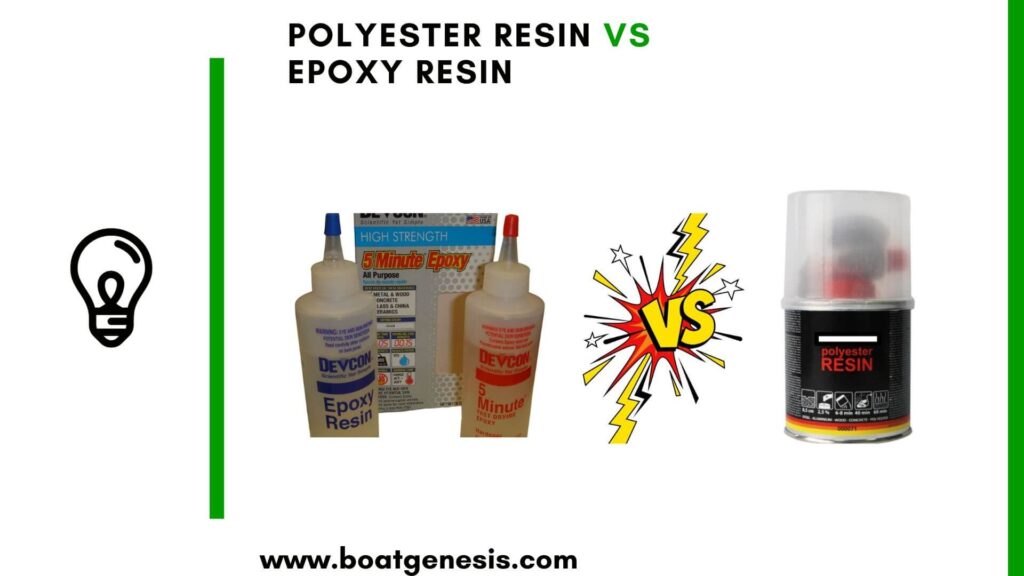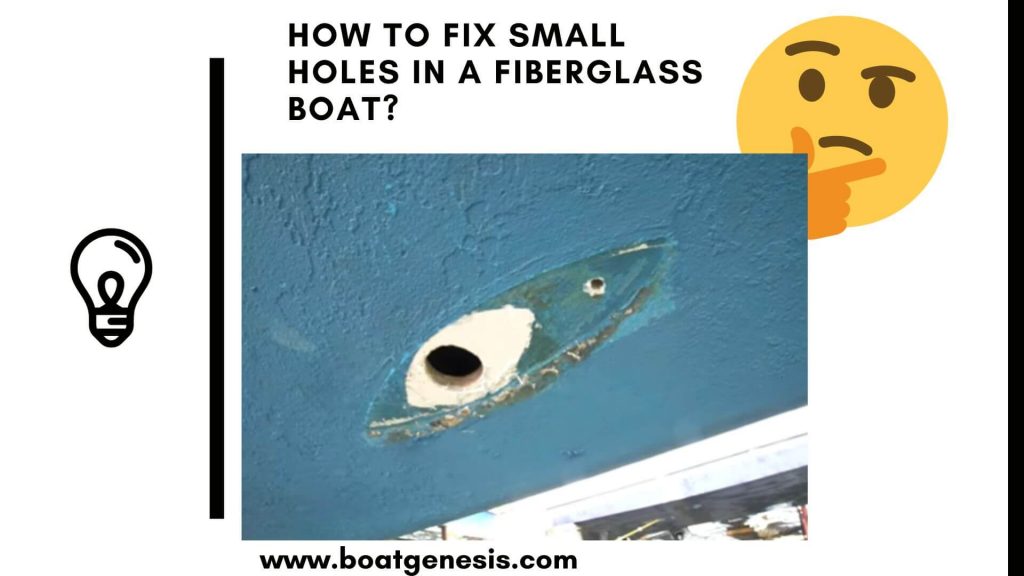Deciding between polyester resin vs epoxy resin represents an important choice when repairing or building a fiberglass boat. Polyester and epoxy each have unique properties influencing their performance for marine applications.
As a boat owner or builder, understanding the key differences between the two resins enables proper selection for your needs.
This article delves into polyester resin vs epoxy resin considerations for both repairing and constructing fiberglass boats.
Factors ranging from composition and strength to cost and environmental resistance help weigh the pros and cons of each option.
By examining the capabilities of each resin side by side, you will gain useful perspective for picking the best match for a project’s demands.
- Quick Overview of Polyester and Epoxy Resin
- Polyester vs Epoxy Resin for Boat Repair
- Polyester Resin vs Epoxy Resin in Boat Construction
- Personal Experience with Polyester Resin
- Final Thoughts
Quick Overview of Polyester and Epoxy Resin
Polyester resin has been the fiberglass boat-building staple for decades. This vinyl ester resin is affordable and user-friendly. With proper surface preparation and technique, polyester resin makes durable and watertight repairs. However, it is not as strong or water-resistant as epoxy over the long run.
Epoxy resin offers superior strength, bonding, and water resistance compared to polyester. However, epoxy resin costs more, requires meticulous mixing, and you’ll have less working time before it starts to cure. Epoxy resin is also more brittle. Hairline cracks may appear in time, allowing moisture intrusion.
Both resins can effectively patch holes, seal cracks, and rebuild boat parts when properly prepared and applied. But they vary significantly in their properties and performance.
Polyester vs Epoxy Resin for Boat Repair
1. Composition and Chemical Properties
A. Polyester Resin
- Composition: unsaturated polyester polymers dissolved in styrene. Pigments and catalysts added
- Chemical properties: reactive, exothermic curing process. Prone to shrinkage.
- Suitability for boat repair: Fair. Works for simple repairs but has limitations for structural fixes.
B. Epoxy Resin
- Composition: epoxide groups, curatives. Heavily crosslinked structure when cured.
- Chemical properties: Low shrinkage, negligible vapors released during cure.
- High suitability for boat repair: Strong bonding, and moisture resistance. Ideal for critical structural repairs.
2. Strength and Durability
A. Polyester Resin
- Strengths: Decent tensile and flexural strength when properly reinforced with fiberglass.
- Limitations: Much lower strength than epoxy. More flexible but also weaker.
- Longevity: Prone to microcracking and degradation over time, allowing moisture ingress.
B. Epoxy Resin
- Strengths: Extremely high bond strength, tensile and compressive strength when cured.
- Limitations: Brittle nature prone to hairline cracks under prolonged stress.
- Longevity: Outperforms polyester over the years, with excellent moisture and chemical resistance.
3. Adhesion and Bonding Characteristics
A. Polyester Resin
- Adhesion properties: Bonds adequately to fibers, wood, metals, and concrete.
- Bonding capabilities: Performs basic bonding of repaired cracks, and holes.
B. Epoxy Resin
- Adhesion properties: Tenacious bond and mechanical grip to boat substrates.
- Bonding capabilities: Structural adhesive qualities. Distributes stresses evenly. Superior for rebuilding complex boat parts.
4. Flexibility and Resistance to Environmental Factors
A. Polyester Resin
- Flexibility: More flexible than epoxy resin. Accommodates some expansion/contraction.
- Resistance: Susceptible to water degradation over time. Medium chemical resistance.
B. Epoxy Resin
- Flexibility: Hard, inflexible when fully cured. Well-formulated systems allow some flexibility.
- Resistance: Impervious moisture barrier. Excellent chemical resistance once cured.
5. Application and Handling
A. Polyester Resin
- Application process: Easy to dispense, combined with MEKP catalyst. Brushed/rolled on.
- Handling considerations: Styrene odor, irritant. Use proper PPE and ventilation.
B. Epoxy Resin
- Application process: Precise measuring/mixing of resin and hardener required. Limited working time.
- Handling considerations: Toxic ingredients and strict PPE precautions are needed during application.
6. Cost and Availability
A. Polyester Resin
- Cost: Most affordable option. Resin costs $15-30 per gallon.
- Availability: Widely available at marine retailers/outlets.
B. Epoxy Resin
- Cost: Premium price of $50-100+ per gallon.
- Availability: Found at specialized composites and boat-building suppliers.
7. Best Use Cases and Recommendations
A. Suitable scenarios for Polyester Resin: Small repairs like stabilizing cracks, and Gel Coat holes. Quick fixes.
B. Suitable scenarios for Epoxy Resin: Structural repairs. Bonding dissimilar materials. Major reconstruction projects.
C. Recommendations: Consider repair size, location, budget, and performance needs. Consult an expert if unsure. Or you can reach out to us at info@boatgenesis.com.
Polyester Resin vs Epoxy Resin in Boat Construction
Polyester and epoxy resins have distinct roles in fiberglass boat building as well.
Polyester resin has been the go-to construction resin for decades. However, epoxies are becoming more popular for structural fabrication and critical connections.
A. Polyester Resin
- The low cost makes the polyester standard for fiberglass production
- Easy to work with in layup and spraying
- Requires more layers for adequate strength
B. Epoxy Resin
- Enhances laminate strength with fewer layers
- Specialty applications like hull/deck bonds, bulkheads
- Significantly higher material cost limit broad use
Epoxy resin’s exceptional bonding and moisture resistance confer major advantages where strength requirements are high. But budget-friendly polyester remains the resin used for most fiberglass boat production.
Personal Experience with Polyester Resin
Having worked with fiberglass and polyester resins building boats at Karnic Powerboats, I highly recommend polyester for boat construction.
During my time at Karnic, we used orthophthalic and isophthalic polyester resins to fabricate high-performance hulls and decks. I found polyester ideal for laminating multiple sheets of fiberglass mat, roving, and core materials.
The polyester resin is impregnated easily into glass fabrics during rolling and spraying. It cured smoothly into a rigid structure. With proper catalyst ratios and high-quality gel coats, we achieved glossy, durable exterior surfaces resistant to weathering.
While epoxy resins offer higher strength, polyesters deliver an unbeatable balance of workability and cost-effectiveness. Extra fiberglass layers offset lower strength. And with routine maintenance, polyester boats last decades.
Given my positive experiences with polyester resins building boats at Karnic, I would certainly choose these dependable, easy-to-use resins again for fiberglass boat construction projects. They deliver excellent performance at a reasonable price point.
Final Thoughts
While epoxy resin is stronger and more waterproof than polyester, it requires precise handling and costs more.
Polyester works for minor repairs, but epoxy is best for critical structural boat fixes needing extreme adhesion and durability.
Carefully weigh the differences before choosing your repair resin.


